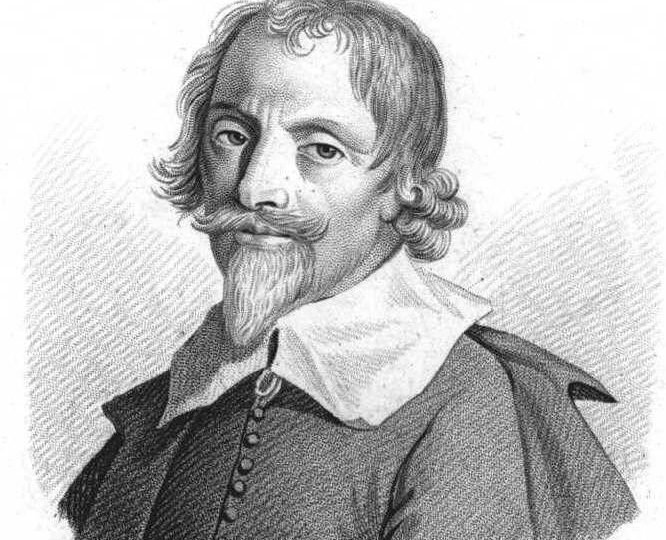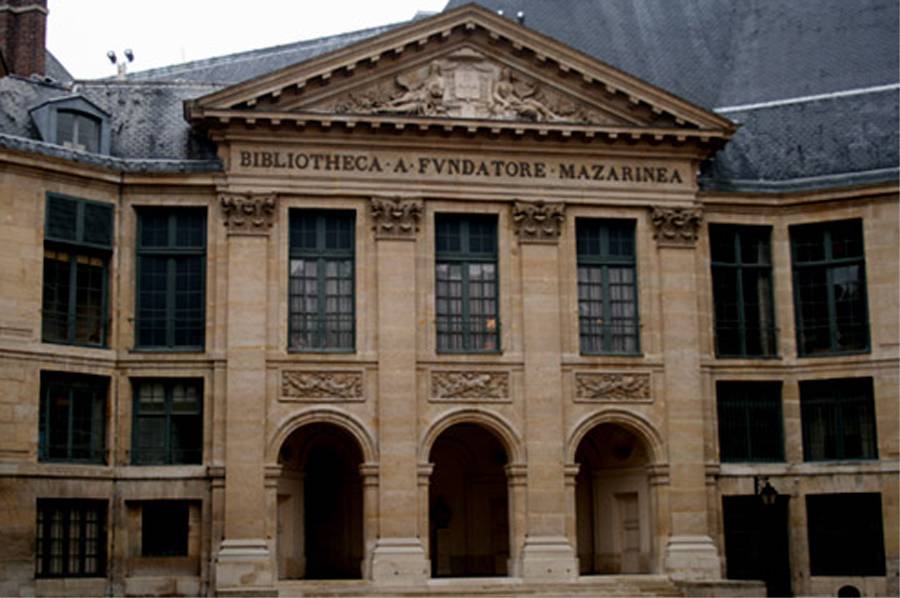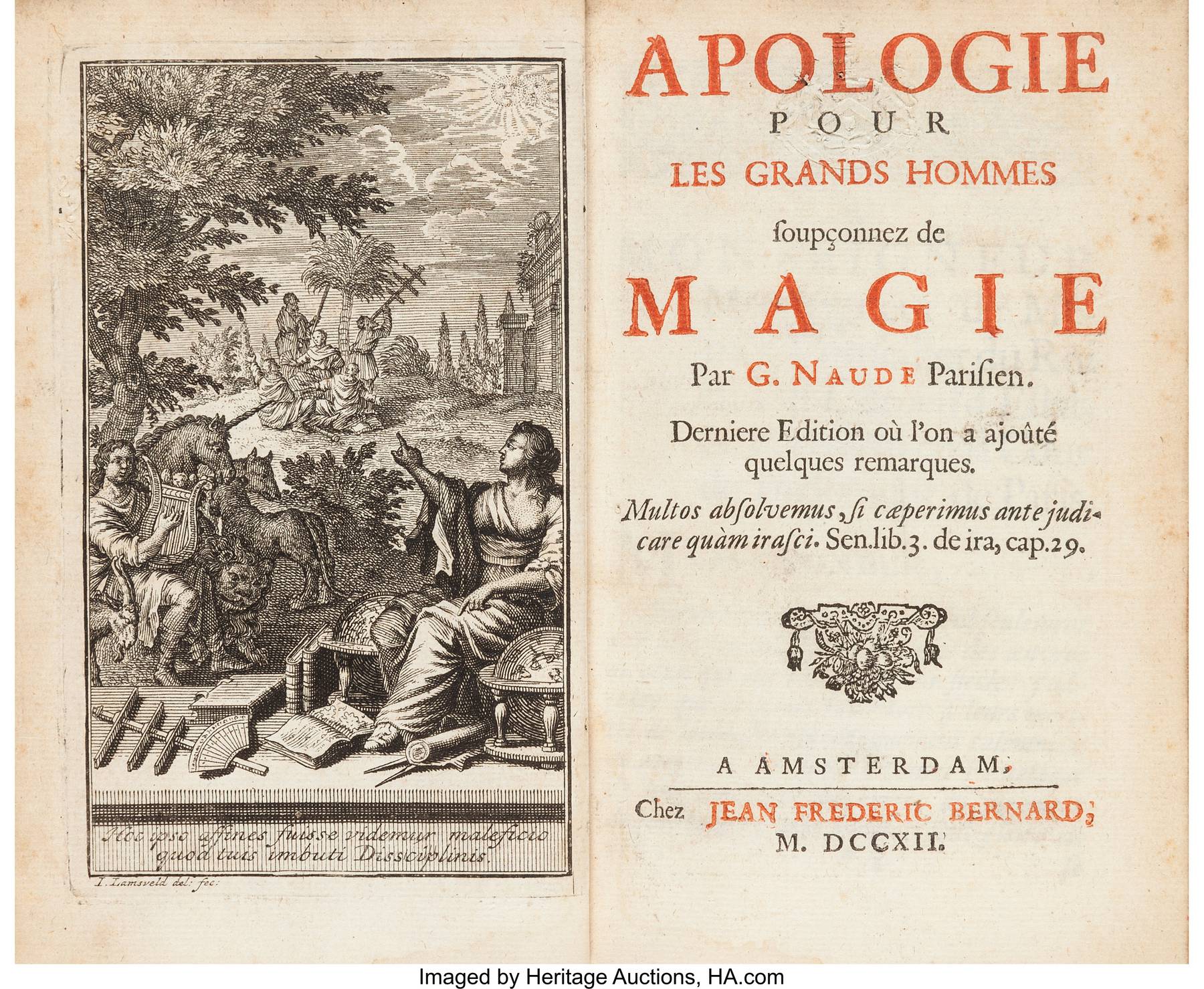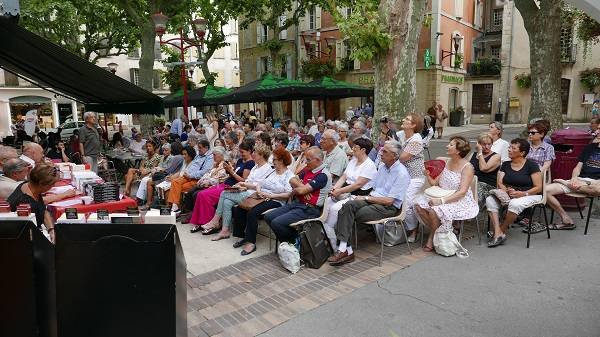
Gabriel Naudé Sans qui Mazarine n’existerait pas !
Gabriel Naudé, né en 1600 dans une famille plutôt modeste, il put néanmoins suivre des études durant lesquelles il acquit une grande culture encyclopédique qui lui permit de se faire remarquer et ainsi d’être chargé en 1622 de gérer la grande bibliothèque privée du président Mesmes du parlement de Paris qui comptait alors pas moins de 8 000 volumes.
Il publie dès 1623 l’Instruction à la France sur la vérité de l’histoire des Frères de la Roze-Croix, et en 1625 l’Apologie pour tous les grands personnages qui ont esté faussement soupçonnez de magie : il y manifeste une vive méfiance à l’égard du surnaturel et, avec une verve impertinente, dénonce les superstitions et les préjugés populaires. Sa grande connaissance des livres lui permit par exemple de publier en 1627 le premier traité de bibliothéconomie moderne sous le titre « Advis pour dresser une bibliothèque ».
Gabriel Naudé Without whom Mazarine would not exist!
Gabriel Naudé, born in 1600 in a rather modest family, he was nevertheless able to follow studies during which he acquired a great encyclopedic culture which allowed him to be noticed and thus to be responsible in 1622 for managing the large private library of President Mesmes. of the Parliament of Paris which then had no less than 8,000 volumes.
He published in 1623 the Instruction to France on the truth of the history of the Brothers of the Roze-Croix, and in 1625 the Apology for all the great characters who were falsely suspected of magic: he showed a strong mistrust with regard to the supernatural and, with an impertinent verve, denounces popular superstitions and prejudices. His great knowledge of books allowed him, for example, to publish in 1627 the first treatise on modern librarianship under the title « Advis To create one library ».

S’il apparaît comme « un type original et pittoresque d’humaniste parisien, capable d’enthousiasme, mais à qui on n’en impose pas, vigilant, caustique, ardent à apprendre, plus lent à croire, prompt à douter » (R. Pintard).
Il se lie avec La Mothe Le Vayer, Diodati et Gassendi : les quatre amis formeront la Tétrade, le grand foyer (secret) de ce « libertinage érudit » qui constitue, entre la Renaissance et le siècle des Lumières un relais essentiel.
Gabriel Naudé quitta par la suite la France en devenant en 1631 le bibliothécaire du cardinal Bagni à Rome et le resta jusqu’à sa mort avant de revenir à Paris en 1642 où il entra cette fois-ci au service du cardinal de Mazarin (1602-1661). Ce dernier avait le projet de fonder une prestigieuse et grande bibliothèque digne d’un ministre et cardinal et chargea Naudé de la constituer. Celui-ci passa donc plusieurs années à enrichir les collections en achetant des volumes à travers l’Europe, si bien que la Mazarine devint rapidement la plus importante bibliothèque privée d’Europe avec pas moins d’environ 40 000 volumes en 1648 tandis qu’elle fut la première bibliothèque française à ouvrir au public en 1643. Mais la Fronde (1648-1653) provoqua le départ de Mazarin et la dispersion d’une partie des collections de la Mazarine, malgré les efforts vains de Naudé pour la reconstituer après coup (Mazarin finira par racheter ses collections).
If he appears as « an original and picturesque type of Parisian humanist, capable of enthusiasm, but on whom one does not impose it, vigilant, caustic, eager to learn, slower to believe, quick to doubt » (R Pintard).
He binds with La Mothe Le Vayer, Diodati and Gassendi: the four friends will form the Tétrade, the great center (secret) of this “erudite libertinism” which constitutes, between the Renaissance and the Age of Enlightenment an essential relay.
Gabriel Naudé subsequently left France, becoming Cardinal Bagni’s librarian in Rome in 1631 and remained so until his death before returning to Paris in 1642 where he entered this time in the service of Cardinal Mazarin (1602- 1661). The latter had the project of founding a prestigious and large library worthy of a minister and cardinal and charged Naudé with constituting it. He therefore spent several years enriching the collections by buying volumes across Europe, so much so that the Mazarine quickly became the largest private library in Europe with no less than around 40,000 volumes in 1648, while it was the first French library to open to the public in 1643. But the Fronde (1648-1653) caused Mazarin’s departure and the dispersal of part of the Mazarine’s collections, despite Naudé’s vain efforts to reconstitute it afterwards (Mazarin will end up buying back his collections).

Gabriel Naudé termina sa carrière comme bibliothécaire de la reine de Suède en 1652 avant de retourner en France où il mourut en 1653 à l’âge de 53 ans. Il laissa derrière lui un important héritage dans l’histoire de la bibliothéconomie en posant des bases importantes en matière de gestion des bibliothèques tels que le classement des livres… et qui serviront bien après sa mort, faisant de lui l’un des plus grands spécialistes des livres de son temps.
Gabriel Naudé ended his career as librarian to the Queen of Sweden in 1652 before returning to France where he died in 1653 at the age of 53. He left behind him an important legacy in the history of librarianship by laying important foundations in library management such as the classification of books… and which will serve long after his death, making him one of the most great book specialists of his time.

RELATED POSTS
View all


